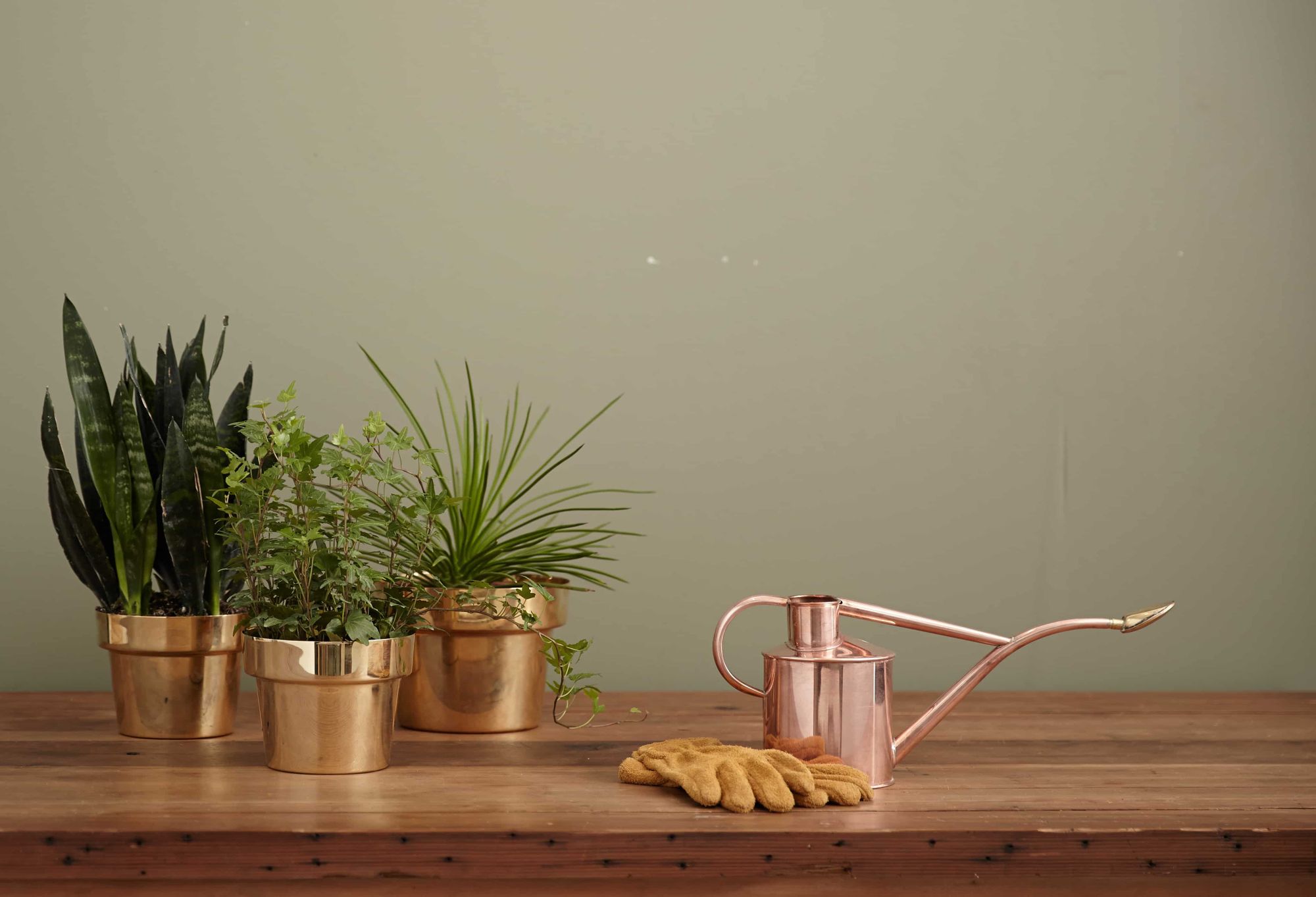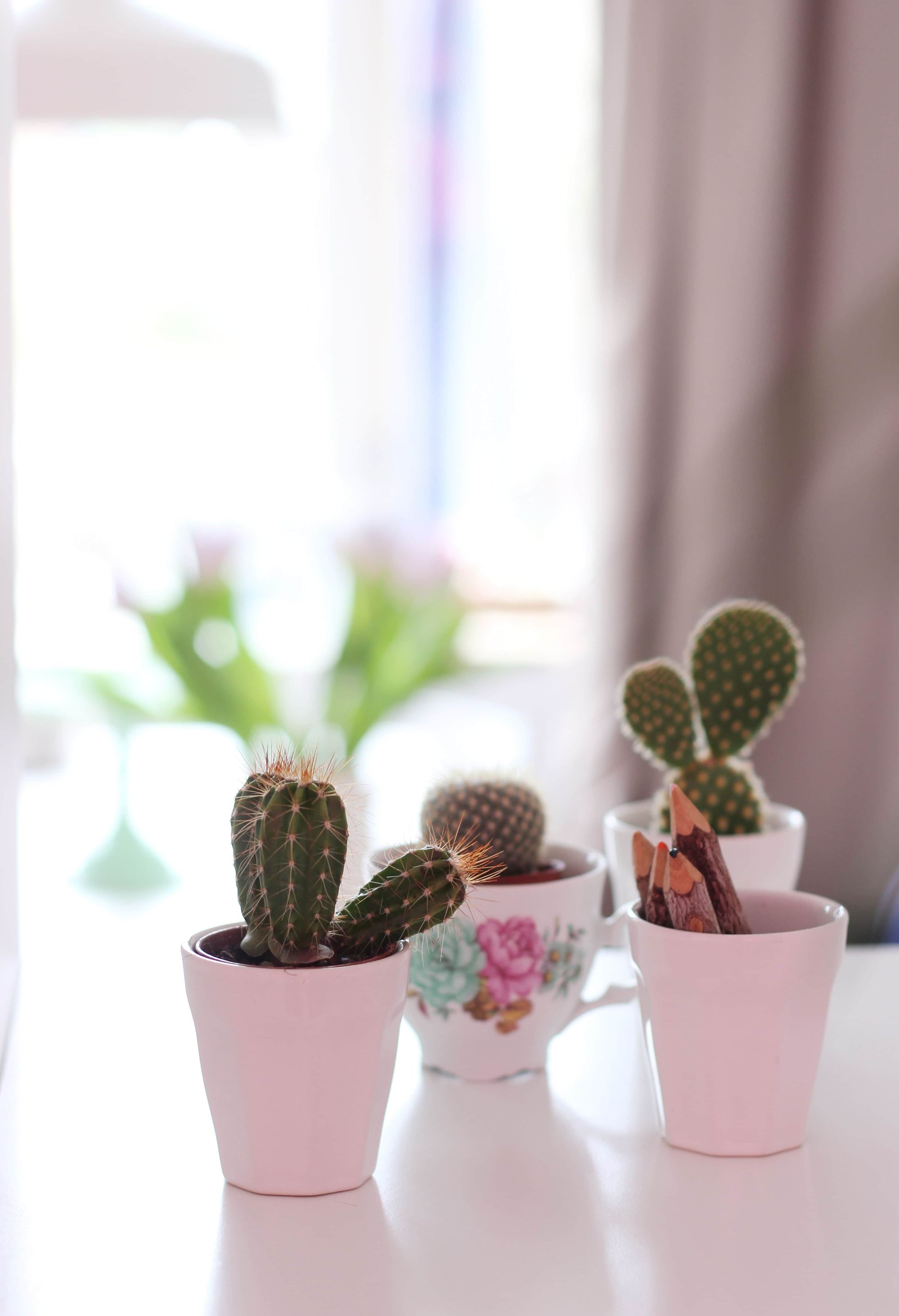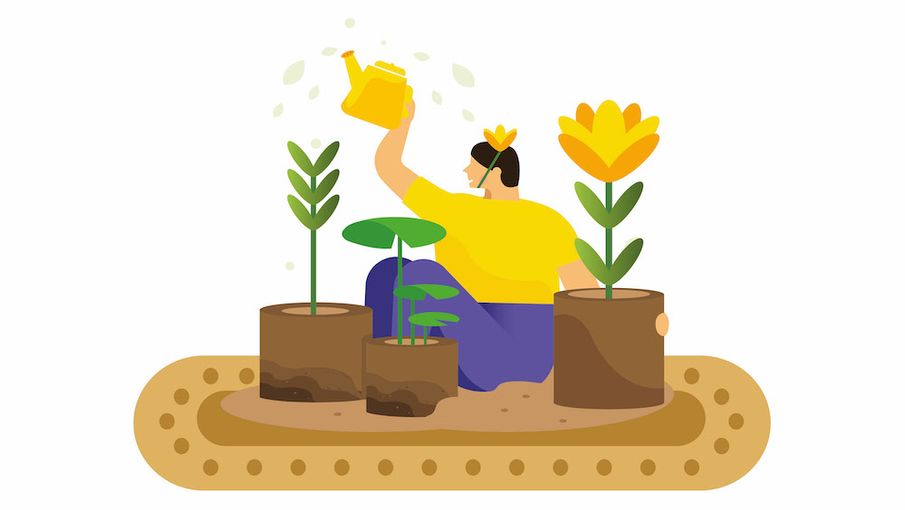We’ve all heard about the mental health benefits we can get from gardening, but what about those of us without a patch of earth to call our own? Can nurturing house and office plants still have mood-boosting effects?
You don’t need a green thumb and a sprawling garden to benefit from the wellbeing-enhancing powers of plants. While an impressive 88% of us head to the garden to improve our mental wellbeing, according to a 2015 study, recent trends suggest more of us than ever before are looking for ways to boost our mental health and wellbeing with indoor plants as well.
Country Living magazine revealed that searches for inspirational indoor plants on Pinterest increased by 90% in 2017, with terrariums, hanging plants, cacti, and tropical plants topping our search results.
To inspire you to get green-fingered, we’ve got five simple ways that caring for indoor plants can help increase your sense of wellbeing.
1. Practise regular mindfulness
Whether you have a window box or a desk corner, caring for plants can be a great way to practise mindfulness, which is is known to improve our wellbeing, promote relaxation, and reduce stress. Try focusing your senses on your plant as you touch the soil to see how dry it is, and examine the leaves for any damage. Clear your mind as you focus on watering, dusting, and caring for your plant.
2. Gain a sense of achievement and responsibility
Watching something grow and thrive based on your hard work, commitment, and dedication can be a positive way to start healthy routines and feel a sense of accomplishment as your plants begin to flourish – and doesn’t come with too much pressure! Low-maintenance plants such as succulents or aloes can be simple (and sturdy) starter-plants.

3. Make it a social activity
According to a survey by The Student Room, 72% of young people have helped someone else with gardening, with 75% not having the space to grow plants of their own despite enjoying the activity. Starting with indoor plants can be a good step towards seeing how much enjoyment you get from gardening before you look at investing in an allotment.
Keeping plants on your desk, or in a shared space, can be a good way to bond with co-workers, who may have plants of their own or are interested in sprucing up their workspace. Offering to look after others’ desk plants while they’re away, or exchanging tips on plant care, can be great ways to make it more sociable.
4. Boost your productivity and wellbeing
The positive power of nature can’t be underestimated, with studies showing that office plants can boost performance, encourage creativity, and increase job satisfaction. In particular, a 2014 study by the University of Exeter reported that productivity rose by 15% by having plants at frequent intervals throughout an office, while a 2010 study, from the University of Technology in Sydney, revealed plants can significantly reduce stress in the workplace, as well as reducing feelings of tension, anxiety, anger, fatigue, and depression.
5. Create a regular self-care routine
Nurturing and caring for your plants can be a positive, gentle reminder to practise your own self-care. Getting in the habit of taking time out to check on your plants, and look after them, can not only be grounding, but can act as a physical reminder of the power a little care and attention can have in helping your plant (and yourself) to thrive.
Six easy-to-care-for houseplants to try
Aloe vera
Low-maintenance, aloe vera purifies the air, and can be used herbally to treat inflammation, scars, and burns.

Lavender
Great for unwinding and reducing anxiety, lavender promotes better sleep. Be careful not to water too much, and keep in a bright area.
Eucalyptus
Good for colds and congestion, eucalyptus has a pleasant but distinct aroma. Remember to water regularly and keep in direct sunlight.
English ivy
Studies suggest this can act as an air purifier and help combat mould levels. Water generously, and keep in direct sunlight.
Succulents
Low maintenance and cute, succulents produce oxygen all day and night.
Spider plant
A resilient option for newbies, these are a great choice for pet owners since they’re non-toxic if accidentally nibbled.


Comments